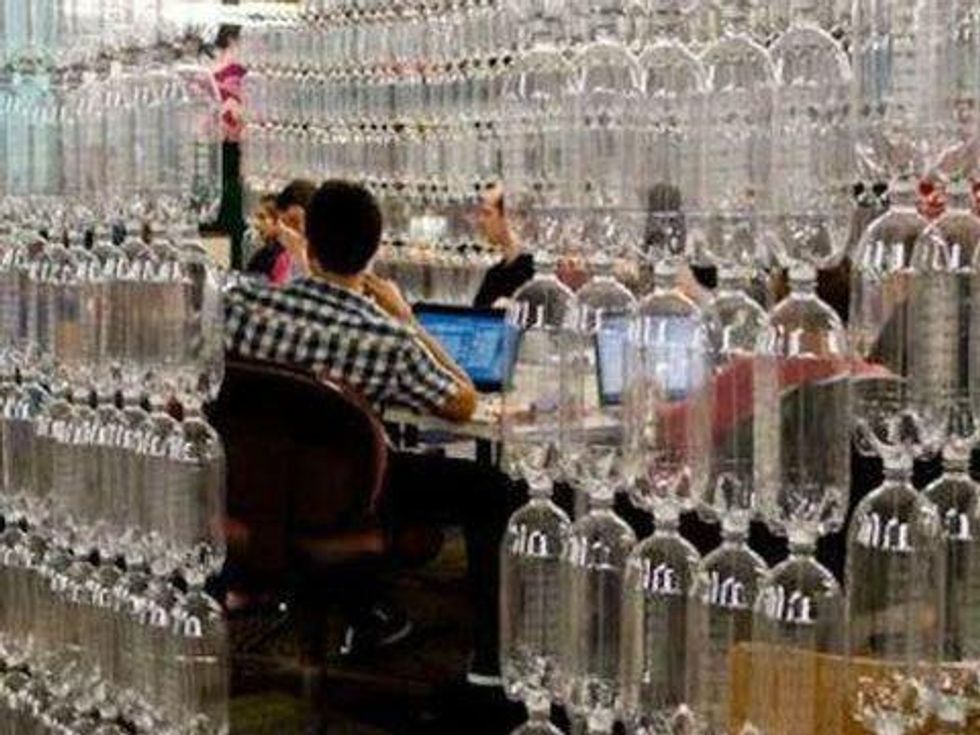Trash Talk
Revolutionaries embark on a mission to change the way Dallas views garbage
There’s not much subtlety in the name Recycle Revolution, and founder Eddie Lott likes it that way. Since it started in 2008, the company has focused on North Texas nonlandfill waste management, and it is the only community recycling drop-off center in the region.
It handles business for companies, apartments and condos all across North Texas, and its drop-off center takes both regular recyclables and less traditional items ranging from light bulbs to toilets. Most of the regular stuff, like paper and plastics, is free. But light bulbs are as much as a dollar a pop, and the toilet will run you $20.
Recycle Revolution hopes to bring more communities and businesses around to the idea of recycling waste in a more environmentally friendly method than dropping trash in a hole, but first the company needs to grab the attention of its neighbors in Deep Ellum.
Recycle Revolution has to fight the inherent issue with its model. Why should you have to pay for recycling?
“We’ve got a ton of support from apartment buildings and condos by Turtle Creek, Highland Park and Uptown,” Lott says. “But we really don’t have anyone in Deep Ellum. There are a lot of pizzerias and other restaurants and bars one or two blocks away that don’t use us.”
Recycle Revolution has a drop-off site in Deep Ellum, but Lott says the only business that drops off its waste there is the multinational sandwich chain Which Wich. Lott says he’s been surprised that a neighborhood that prides itself on doing so much “local” is still using Waste Management — a landfill, nonlocal company — to handle its leftovers and trash.
However, he admits that he may have done a poor job of letting his Deep Ellum neighbors know that Recycle Revolution was there. He’s trying to rectify that. He recently sent out a community letter and has other awareness plans in the works.
Perhaps it’s a perception problem. Recycle Revolution has to fight the inherent issue with its model. Why should you have to pay to do something as environmentally friendly as recycling?
“It’s counter-intuitive,” Lott admits. “But landfills are cheap. One truck drives around picking up trash and then dropping it in a hole. Recycling means it has to go to multiple wholesalers and processing plants, and people just aren’t used to paying for it.”
Lott says the demographics of his users have surprised him. Although he has more than 30 bar and restaurant clients on Henderson Avenue, he does not have a single client on the Knox side of Central Expressway. And he discovered that many socially conscious citizens are flocking to neighborhoods besides Deep Ellum.
“You think the young people in Deep Ellum are going to be the ones leading the charge,” he says. “But lots of Uptown and Turtle Creek people are from out of the state, either places like California or foreign countries that are more connected to waste. They grasp that there are finite resources.”
Deep Ellum isn’t the only local-leaning neighborhood using Waste Management. Despite having 150 clients in North Texas suburbs as far away as Sunnyvale and Allen, Recycle Revolution has no clients in the Bishop Arts District. Lott wants to change that.
“I’m trying to talk to neighborhoods like Deep Ellum and Bishop Arts,” he says. “Bishop Arts likes to brag about where their food comes from, but then they throw it in the dumpster. We want them to brag about where their food goes.”
That said, it is hardly the fault of a single neighborhood. It’s about getting everyone to care, Lott says, and championing the culture.
“We’ve got to get people that don’t care if others are doing it,” he says, “and then have them show others in the industry that we can do it and it’s right to do it.”


